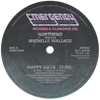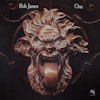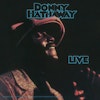There are some tracks that seriously move bodies and set a dance floor off as soon as a DJ drops in even the briefest moments of their madness. This is certainly one of those records. A hard-hitter played frequently by Larry Levan at the Paradise Garage, that historical debut set the stage for this humble release to become a stone-cold, electro-tinged classic that is still rocked today to huge reactions.
The pedigree of this record is deep—Northend was a studio group put together by the legendary Arthur Baker, who would later go on to play a huge role in the creation of early hip-hop and freestyle. Baker recruited writer/producer Tony Carbone and drummer Russell Presto to create the group. Their first release was the generic disco, sing-song “Kind of Life” on West End Records, but their breakout moment came with “Happy Days” as they made a move to Emergency Records. Interestingly, the New York City classic “Happy Days” and its more popular B-side “Tee’s Happy” were born out of connections made in Massachusetts, as Baker hailed from Boston before making the move to the Big Apple, and he, Carbone, and Presto pulled their singer, Boston-area resident Michelle Wallace, out of a family act there called the Wallace Sisters. The tell is right in the band’s name: the North End is an iconic, largely Italian, Boston neighborhood.
Everything on this underground stunner was created live in the studio. Presto supplied the drumbeat, which was said to have taken five hours to get right. He was tragically murdered a few years after this track came out, but his contribution to the group was sizable. Uncredited musicians on the cut, revealed by Arthur Baker in later interviews that found him reminiscing about the session, include guitarist Charlie Streeter and Andre Booth on keyboards. Booth is notable for producing Vicki D’s banger “This Beat Is Mine” and a handful of other 12-inches released on Sam Records.
The A-side, “Happy Days,” is a monster of a track in itself that exudes joy with its effective upbeat refrain and emotional trajectory. However, the dub version B-side, called “Tee’s Happy,” was more popular in clubs and brought much-needed attention to DJ Tee Scott and his ability to bring magical twinkle and sparks to dance tracks of the day. His name being incorporated into the title of his re-work shows how important remixing was becoming during the era.
Scott’s experience as a beloved DJ at the helm of NYC’s Better Days and New Jersey’s Zanzibar and Cheetah Club in the late ’70s and early ’80s taught him how to connect with dancers explicitly. Thought to be the first DJ who used three turntables in nightclubs, his reimaginings took the hottest elements of songs and put them front and center so they could shine. The way he teases out this instrumental version of the song, withholding the explosive peak, makes listeners anxiously await the intense release of the chorus and lose it when it finally arrives. Scott, who died at the young age of forty-seven, went on to add his pixie dust to hundreds of dance tracks on labels like Salsoul, Philadelphia International, and others, but this namesake cut remains a high point in his career.


